![]()
![]()
![]()
Use LEFT and RIGHT arrow keys to navigate between flashcards;
Use UP and DOWN arrow keys to flip the card;
H to show hint;
A reads text to speech;
39 Cards in this Set
- Front
- Back
- 3rd side (hint)
|
Articles of Confederation |
The Articles of Confederation, formally the Articles of Confederation and perpetual Union, was a document signed amongst the 13 original colonies that established the United States of America as a confederation of sovereign states and served as its first constitution. |
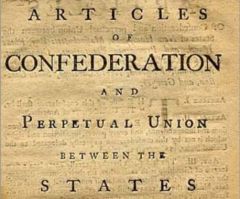
|
|
|
levy
|
an amount of money that must be paid and that is collected by a government or other authority
|

|
|
|
Founders (or Framers)
|
people who helped create the U.S constitution
|
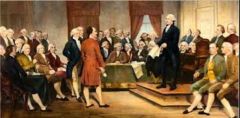
|
|
|
Virginia Plan
|
proposal for a 2 house legislature with representation according to each states population or health
|
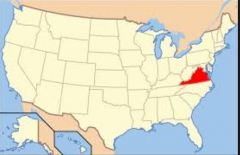
|
|
|
New Jersey Plan
|
proposal for a legislature in which each state would have one vote
|

|
|
|
Great Compromise
|
agrement to establisha two house national legislature, with all states having equal representation in one house and each state having representation based on its population in the other house
|
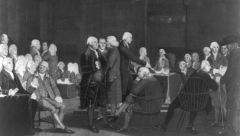
|
|
|
Three-Fifths Compromise
|
agreement that three-fifths of a state slave population would be counted for representation and taxation
|
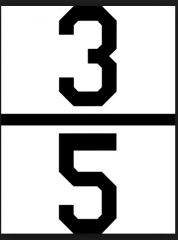
|
|
|
Executive Branch
|
The executive is the part of the government that has sole authority and responsibility for the daily administration of the state. The executive branch executes, or enforces the law. The division of power into separate branches of government is central to the idea of the separation of powers.
|
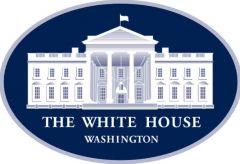
|
|
|
Judicial Branch
|
The judiciary (also known as the judicial system or court system) is the system of courts that interprets and applies the law in the name of the state. The judiciary also provides a mechanism for the resolution of disputes.
|
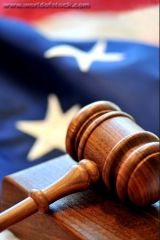
|
|
|
Legislative Branch
|
the branch of government having the power to make laws
|
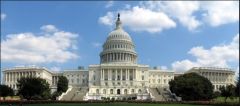
|
|
|
Checks & Balances
|
the ability of each branch of government to excersize checks,or controls, over the other branches
|
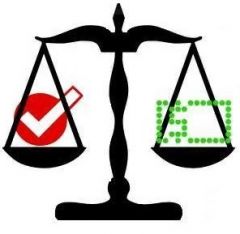
|
|
|
Antifederalists
|
people who did not like the constitution
|
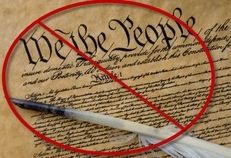
|
|
|
Federalists
|
people who supported the constitution
|
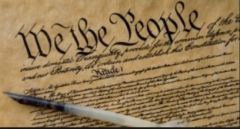
|
|
|
Federalism
|
a system of government in which sovereignty is constitutionally divided between a central governing authority and constituent political units
|
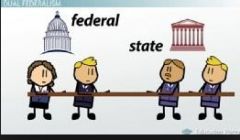
|
|
|
majority rule
|
system of government in which more than one half of a group holds the power to make decisions binding the entire group
|
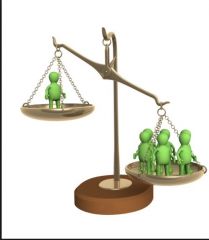
|
|
|
amendment
|
An amendment is a formal or official change made to a law, contract, constitution, or other legal document
|
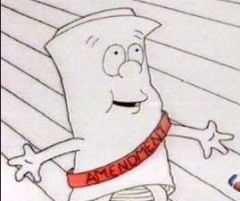
|
|
|
Bill of Rights
|
The Bill of Rights is the collective name for the first ten amendments to the United States Constitution
|
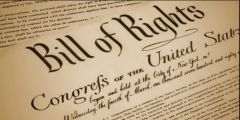
|
|
|
House of Representatives
|
the lower house of a legislative body
|
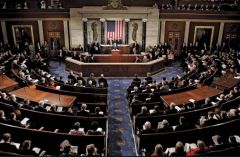
|
|
|
Senate
|
an assembly or council of citizens having the highest deliberative functions in a government, especially a legislative assembly of a state or nation.
|
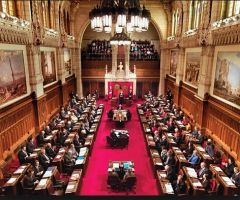
|
|
|
Congress
|
the national legislative body of the U.S., consisting of the Senate, or upper house, and the House of Representatives, or lower house, as a continuous institution
|
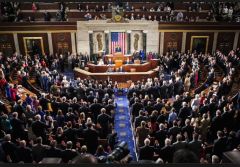
|
|
|
Popular Sovereignty
|
a doctrine in political theory that government is created by and subject to the will of the people
|

|
|
|
Republicanism
|
adherence to or sympathy for a republican form of government
|
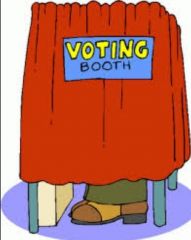
|
|
|
separation of powers
|
an act of vesting the legislative, executive, and judicial powers of government in separate bodies.
|
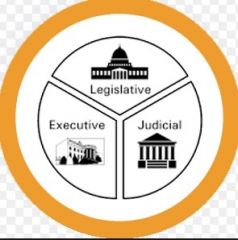
|
|
|
limited government
|
Government. restricted with reference to governing powers by limitations prescribed in laws and in a constitution, as in limited monarchy; limited government.
|
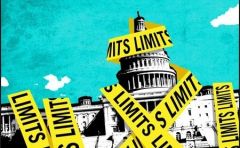
|
|
|
judicial review
|
principle that states that the supreme court has the final say in interpreting the constituition
|
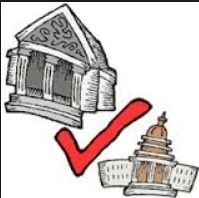
|
|
|
impeachment
|
to formally accuse the prseident of misconduct in office
|
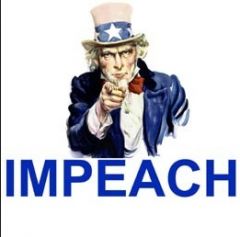
|
|
|
quorum
|
the number of members of a group or organization required to be present to transact business legally, usually a majority
|

|
|
|
revenue
|
the income of a government from taxation, excise duties, customs, or other sources, appropriated to the payment of the public expenses.
|

|
|
|
veto
|
a decision by a person in authority to not allow or approve something (such as a new law)
|

|
|
|
naturalization
|
to allow (someone who was born in a different country) to become a new citizen
|
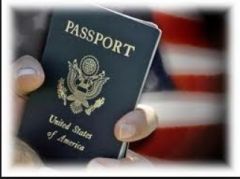
|
|
|
elastic clause
|
a statement in the U.S. Constitution granting Congress the power to pass all laws necessary and proper for carrying out the enumerated list of powers.
|
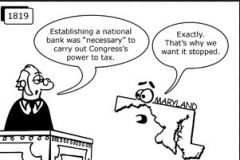
|
|
|
natural born citizen
|
a natural-born citizen of the United States is one of the eligibility requirements established in the United States Constitution for election to the office of President or Vice President
|

|
|
|
electoral college
|
a body of electors;one that elects the president and vice president of the United States
|
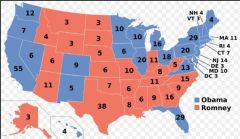
|
|
|
Supreme Court
|
the highest court of law in a country or U.S. state
|
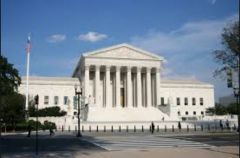
|
|
|
suffrage
|
the right to vote in an election
|
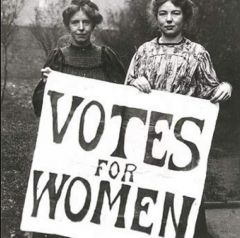
|
|
|
due process of law
|
fair treatment through the normal judicial system, especially as a citizen's entitlement.
|
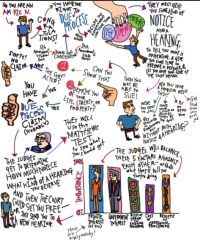
|
|
|
bail
|
property or money given as surety that a person released from custody will return at an appointed time.
|

|
|
|
Constitution
|
the system of fundamental principles according to which a nation, state, corporation, or the like, is governed. |
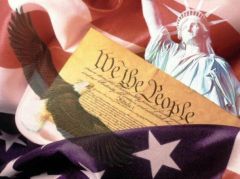
|
|
|
Bicamerilism |
Bicameralism is an essential and defining feature of the classical notion of mixed government. Bicameral legislatures usually require a concurrent majority to pass legislation. |
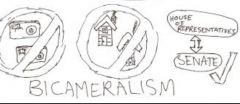
|

